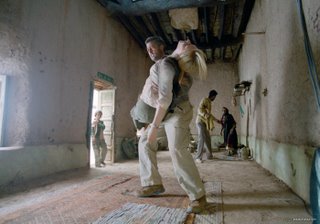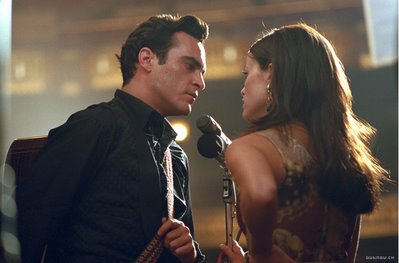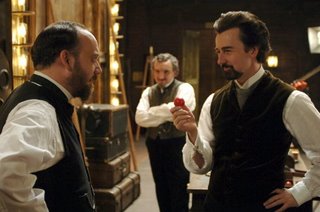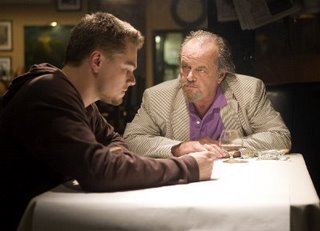 An on-going series about movies I saw, had some thoughts about, but won't be reviewing.
An on-going series about movies I saw, had some thoughts about, but won't be reviewing. Sunset Boulevard (1950)
I really only knew Billy Wilder from his comedies before this, but it doesn't take that much of a leap to see what he could do with darker material. His best comedies, like The Apartment, had a dark edge to them anyway. I liked the movie well enough, but there were moments when I felt like Gloria Swanson was swinging away from truly rocking the role and into high camp. Still, it's her movie from start to finish. William Holden may be the protagonist and the narrator, but he basically has the thankless task of standing back from her whirlwind.
Splendor in the Grass (1961)
 I went into this one thinking that it was one of the great teen romance movies of all time, and I turned it off wondering how in the world it got that rep. Natalie Wood and Warren Beatty do great work in their roles, particularly Wood (I can still hear her hitting all the right notes of yearning and desperation), but . . . were they kidding with this stuff? And isn't it supposed to be based on an urban legend from the town in which writer William Inge grew up? Alright, kids, here's today's take home message: go out and lose your virginity immediately because it will drive you completely crazy (Wood) or to a physical collapse (Beatty) if you don't. I get what they are doing here with ideas of growing up right and sexual repression and the whole parents-just-don't-understand thing, but this is too much. At a certain point I only kept the damn thing on because I was waiting Beatty and Wood to finally find their way back to each other, only to get a sickening feeling that they wouldn't. And then they didn't. So they went through all of that for nothing? Okay, then.
I went into this one thinking that it was one of the great teen romance movies of all time, and I turned it off wondering how in the world it got that rep. Natalie Wood and Warren Beatty do great work in their roles, particularly Wood (I can still hear her hitting all the right notes of yearning and desperation), but . . . were they kidding with this stuff? And isn't it supposed to be based on an urban legend from the town in which writer William Inge grew up? Alright, kids, here's today's take home message: go out and lose your virginity immediately because it will drive you completely crazy (Wood) or to a physical collapse (Beatty) if you don't. I get what they are doing here with ideas of growing up right and sexual repression and the whole parents-just-don't-understand thing, but this is too much. At a certain point I only kept the damn thing on because I was waiting Beatty and Wood to finally find their way back to each other, only to get a sickening feeling that they wouldn't. And then they didn't. So they went through all of that for nothing? Okay, then.Confidential to Warren: I'll take this all back if you would just make some more movies. Thanks.
If you take three great performances from three great actresses and toss in another tender, haunting, and dense score from minimalist Philip Glass, what do you get? An dull and dry movie, apparently. I can understand why the women in question received such accolades, but what is with this movie? On and on she goes, with no real surprises and not much in way of the character development. If we are supposed to consider it a meditation on a theme (suicide), then it failed in that regard as well. One woman doesn't end up offing herself even though she had a freaky hell-child from whom I wanted her to escape. In other plot, I simply counted the minutes until the suicide occurred. "Now? How 'bout now? Now? Oh, finally." And then that roundabout twist revealed too late into the movie that the mom walked out? How was that supposed to make me feel? Ah, well. I think, in the end, that it's more of a mood piece than anything: impossible to really see what's happening if you're not in the mood.

































